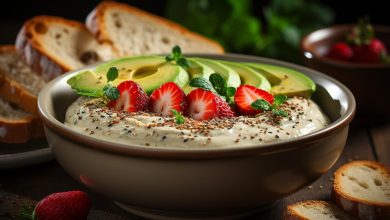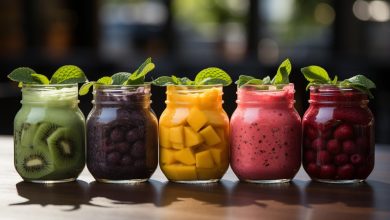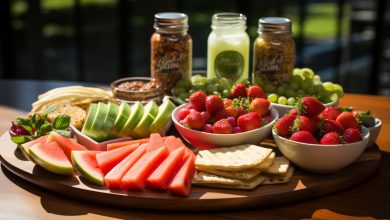Pre-Run Foods to Avoid: What Not to Eat Before a Run
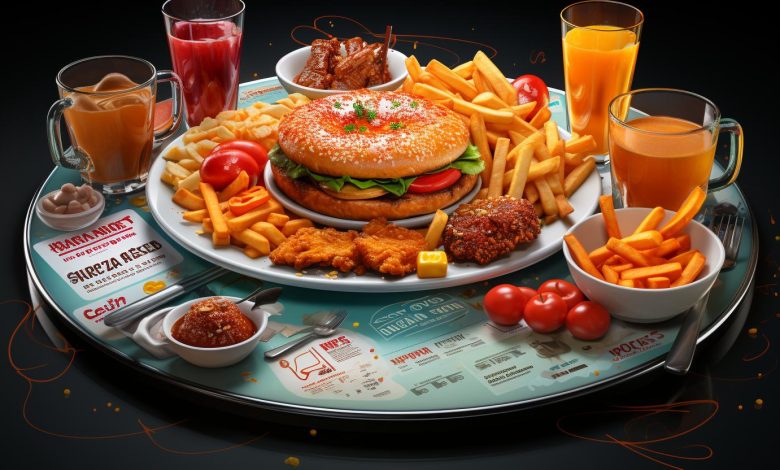
Looking to optimize your running performance? It’s crucial to fuel your body with the right foods before hitting the pavement. Avoiding certain pre-run foods can help prevent digestive issues and ensure a smooth run.
Imagine this: you’re about to embark on a long-distance race when suddenly, you feel a sharp pain in your stomach from that greasy burger you had earlier. To avoid this scenario, let’s explore the top foods you should steer clear of before lacing up those running shoes.
High-Fat Foods

High-fat foods can cause discomfort and should be avoided before a run. When you consume high-fat foods, they take longer to digest compared to other macronutrients like carbohydrates and proteins. This means that if you eat a meal high in fat right before your run, it may still be sitting in your stomach during exercise, leading to feelings of heaviness and sluggishness.
In addition to the impact on digestion, high-fat foods also have an effect on energy levels during a run. Fats are a concentrated source of calories, providing more than double the amount of calories per gram compared to carbohydrates or proteins. While fats are an essential part of our diet for overall health, consuming too much fat before a run can lead to higher calorie intake without providing the quick energy needed for optimal performance.
To fuel your runs effectively without relying on high-fat foods, consider incorporating alternatives such as complex carbohydrates and lean proteins into your pre-run meals or snacks. Foods like whole grain bread or pasta, fruits, vegetables, yogurt, or lean meats are excellent choices that provide necessary nutrients while being easier to digest and providing sustained energy throughout your run.
Spicy Foods

Eating spicy foods right before a run can cause discomfort and digestive issues. Spices like chili peppers contain a compound called capsaicin, which can irritate the lining of your stomach and lead to heartburn or indigestion. Additionally, spicy foods have been known to increase bowel movements, potentially causing you to make unexpected pit stops during your run.
Here are three reasons why you should avoid spicy foods before running:
– Digestive discomfort: Spicy foods can trigger symptoms like bloating, gas, and cramping. These uncomfortable sensations can significantly impact your performance and overall enjoyment of the run.
– Impact on hydration: Spicy foods tend to make you sweat more as they increase body temperature. This excess sweating can lead to dehydration if you don’t consume enough fluids during your run.
– Acid reflux risk: The high acidity in spicy foods may exacerbate acid reflux symptoms while running, causing a burning sensation in your chest.
To ensure a comfortable and successful run, it’s best to avoid consuming spicy dishes or sauces immediately before hitting the pavement. Instead, opt for lighter and easily digestible meals that provide sustained energy without causing digestive distress.
Now let’s move on to the next topic – fiber-rich foods!
Fiber-Rich Foods
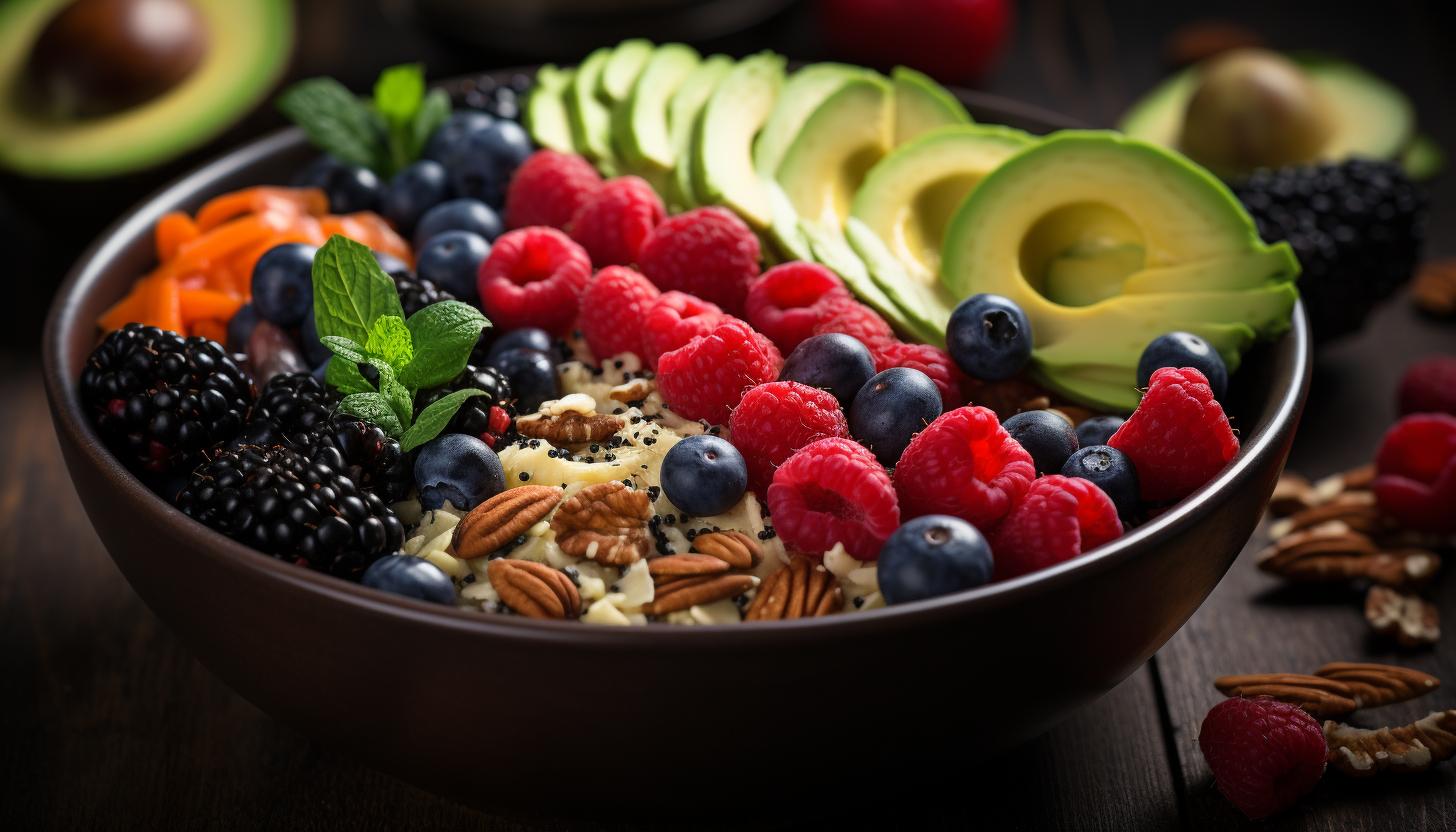
Incorporating fiber-rich foods into your diet can greatly improve your overall digestive health and keep you feeling satisfied throughout the day. When it comes to breakfast, opting for a high fiber meal can set you up for a successful day ahead.
Starting your morning with a fiber-rich breakfast can help regulate bowel movements, prevent constipation, and promote a healthy gut.
One way to incorporate more fiber into your breakfast is by choosing whole grain options such as oatmeal or whole wheat bread. These foods are not only rich in fiber but also provide essential nutrients like vitamins, minerals, and antioxidants.
Another great option is adding fruits like berries or bananas to your breakfast bowl or smoothie. Fruits are packed with dietary fiber that aids in digestion.
If you prefer a savory breakfast, consider including vegetables like spinach or peppers in an omelette or scrambled eggs. These veggies add extra fiber while providing important vitamins and minerals.
Remember to gradually increase your fiber intake and drink plenty of water throughout the day to avoid any discomfort or bloating.
Heavy Meals

Indulging in heavy meals before a run can leave you feeling sluggish and weighed down. Instead of fueling your body with nutrient-rich foods, heavy meals can have a negative impact on your digestive system and overall performance. Here are some reasons why you should avoid heavy meals before a run:
– Nutritional benefits: Heavy meals often contain high amounts of fat, which takes longer to digest. This means that the energy from these foods is not readily available for your muscles to use during exercise. Opting for lighter options will provide you with the necessary nutrients without weighing you down.
– Digestive system impact: When you consume a large meal, your body directs blood flow towards the digestive system to aid in digestion. This can divert blood away from your muscles, leading to decreased performance and potential discomfort during your run.
– Increased risk of gastrointestinal issues: Heavy meals can increase the risk of experiencing stomach cramps, bloating, or even diarrhea during exercise. These uncomfortable symptoms can significantly hinder your running experience.
Sugary Snacks

If you opt for sugary snacks before your run, you may experience a quick burst of energy followed by a crash that leaves you feeling fatigued. While these snacks may seem like a convenient choice, they can actually hinder your performance and overall running experience.
Sugary drinks and energy bars are often marketed as quick sources of fuel for athletes. However, their high sugar content can lead to rapid spikes in blood sugar levels, causing an initial surge of energy followed by a sharp drop. This can leave you feeling tired and drained during your run.
To understand the impact of sugary snacks on your body, let’s compare them to healthier alternatives:
| Sugary Snacks | Healthier Alternatives |
|---|---|
| High in added sugars | Natural sources of carbohydrates such as fruits or whole grains |
| Provide instant energy | Release energy over time |
| Can cause crashes | Sustain energy levels |
By choosing healthier options like fruits or whole grains, you provide your body with sustained energy throughout your run. These foods release glucose into the bloodstream at a slower rate, preventing sudden drops in energy levels.
Conclusion
So there you have it, my friend. You now know what not to eat before a run. Avoid those high-fat foods and spicy dishes if you want to avoid feeling like a sloth on the track.
And don’t even think about loading up on fiber-rich foods or heavy meals if you want to avoid some serious tummy troubles mid-run. Oh, and sugary snacks? They may give you a quick burst of energy, but they’ll leave you crashing and burning in no time. Trust me, I speak from experience.
Stick to light, easily digestible options before your run for optimal performance.
Happy running!


